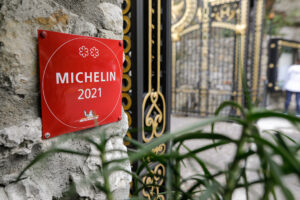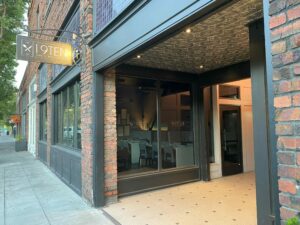Just before 10 p.m. Monday night, the California Department of Public Health (CDPH) outlined new regulations urging all California restaurants to close their dining rooms indefinitely to prevent the transmission of COVID-19. Pick-up, delivery and drive-through service will not be affected.
Just one day earlier, Gov. Gavin Newsom asked all bars and nightclubs to close and restaurants space out tables over worries about community transmission in enclosed spaces. As the pandemic continues to affect life around the world, it did not come as a surprise that the CDPH extended more broad-reaching guidance yesterday.
“We know this isn’t easy,” said state Sen. Mike McGuire, D-Healdsburg, reacting to the news. “Thank you for your cooperation.”
The drastic public safety move will likely leave thousands of local food industry workers — from servers and cooks to bar staff and dishwashers — without work indefinitely as restaurateurs move to simpler menus and shed staff to comply with the most recent recommendations.
“We laid off everyone except our two salaried sous chefs. Hardest day of my “hospitality” life,” said Chef Matthew Williams of Ramen Gaijin in Sebastopol.
Having weathered fires, floods, and evacuations, local restaurants are now facing a whole new set of economic challenges. Bracing for what seemed inevitable after restaurant closure orders in New York, Massachusetts, Ohio, Washington and Illinois, most Sonoma County restaurants and food purveyors — from high-end luxury spots in Healdsburg to small bakeries and pizzerias — have already pivoted to providing curbside takeout or delivery.
Others, however, have decided to close entirely. Sondra Bernstein’s Girl and the Fig in Sonoma, and Trading Post in Cloverdale proactively decided to close their businesses on Monday.
Bernstein, whose Sonoma-based businesses include The Girl and The Fig, Fig Cafe and Wine Bar, Girl and the Fig Caters, Suite D, The Fig Rig and Fig Cakes and Sweets, said she is taking a cue from the many cancellations across the country.
“Our staff needs the work,” Bernstein said, “We know this will be a financial challenge for all of us, but we know it is the right decision on this day. We want to do what we can do to curb the spread of germs and the virus, and we believe that this is in the best interest of public health.”
Already operating on thin margins, restaurant owners can ill-afford even a few days without customers. The prospect of weeks or months of disrupted service could result in many restaurants throwing in the towel. Some, like Gaijin’s Williams said they are already looking into loans set up by the Small Business Administration to help them get through.
Restaurant workers may face an even bleaker future. The vast majority are paid low wages and do not qualify for paid vacations, family leave or significant sick time. It’s a problem that’s long plagued an industry where workers typically live paycheck to paycheck. The only real solution is to file for unemployment — assuming they are documented workers who qualify for assistance.
On Monday, Gov. Newsom issued an executive order authorizing local governments to halt evictions for renters and homeowners, slow foreclosures and protect against utility shutoffs for Californians affected by COVID-19 until late May.
It’s a temporary stopgap for an increasing number of Californians who’ve lost wages or been laid off due to COVID-19.
“People shouldn’t lose or be forced out of their home because of the spread of COVID-19,” said Governor Newsom. “Over the next few weeks, everyone will have to make sacrifices – but a place to live shouldn’t be one of them. I strongly encourage cities and counties take up this authority to protect Californians.”
A federal bill that would provide free coronavirus testing, paid leave and sick time for struggling workers affected by COVID-19 job loss was approved by the House of Representatives but remains in the Senate. The bill would also provide aid for food and childcare.
This is a developing story, which will be updated.











